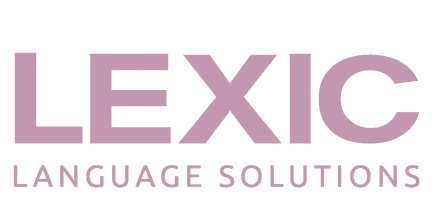In the realm of clinical trials, where patients are invited to participate in experimental treatments or research studies, informed consent is not only crucial but legally mandated. It serves as a fundamental ethical principle, ensuring that participants understand the risks, benefits, and procedures involved in the trial before making a decision to participate. However, the complexity of clinical trial protocols and the specialized terminology used in informed consent documents can present significant challenges for patients, particularly those with limited health literacy or non-native language speakers. Moreover, patients who are considering participation in a clinical trial are often already dealing with the stress and uncertainty of a medical diagnosis, making it even more challenging for them to process and comprehend complex information.
This is where the importance of using lay language in translating patient Informed Consent Forms (ICF) for clinical trials becomes paramount.
The following 5 points summarise why it is so important to use layperson language in the translation of informed consents:
- Accessibility and Comprehension: The foremost importance of using lay language when translating ICFs lies in ensuring accessibility and comprehension for all participants. Lay language facilitates understanding among patients with varying levels of health literacy and language proficiency, enabling them to grasp the trial’s purpose, procedures, risks, and benefits effectively.
- Informed Decision-Making: Lay language translations empower patients to make informed decisions about their participation in clinical trials. By presenting information in plain, straightforward terms, participants can better understand the implications of their involvement, enhancing their ability to weigh the risks and benefits and make choices aligned with their preferences and values.
- Transparency and Trust: The use of lay language fosters transparency and trust between researchers and participants. Clear, understandable information builds trust in the research process, ensuring that participants feel confident in their decision to participate and trust that their interests are being prioritized. This transparency is foundational to ethical research conduct.
- Mitigating Misunderstandings: Lay language translations help mitigate the risk of misunderstandings and misinterpretations that could compromise the integrity of the consent process. By using plain language that is easily understood by patients, clinical trial sponsors can reduce the likelihood of misunderstandings and ensure that participants have a clear and accurate understanding of the trial requirements and potential outcomes.
- Ethical Validity and Inclusivity: Finally, using lay language in translating patient informed consent documents enhances the ethical validity of the consent process and promotes inclusivity in clinical trials. Ethical guidelines mandate that consent be obtained voluntarily and that participants have a full understanding of the information presented. Lay language translations uphold these principles by ensuring that all participants, regardless of their language or literacy level, can access and comprehend essential information about the trial, thereby promoting equity and inclusivity in research participation.
The use of readability tools holds significant importance in assessing the lay language used in informed consent documents for patients participating in clinical trials. These tools provide objective measures of the readability and comprehensibility of the document, helping researchers and translators ensure that the information presented is accessible to a diverse range of participants. By analyzing factors such as sentence complexity, vocabulary difficulty, and overall readability scores, readability tools offer valuable insights into whether the language used is suitable for the target audience, including individuals with varying levels of health literacy and linguistic backgrounds. These tools play a crucial role in ensuring that translations strike the right balance between simplicity and comprehensiveness, reducing the likelihood of confusion or ambiguity in the information presented.
In conclusion, using lay language and presenting information in clear, simple language that is easily understood by patients, clinical trial sponsors and researchers can empower participants to make informed decisions about their involvement in research and ensure that all patients have equal access to essential healthcare information, regardless of their language or literacy level.


